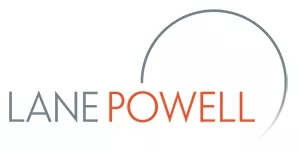Taking effect January 1, 2022, California's "Silenced No More Act" (SB 331) amends the Code of Civil Procedure and the Fair Employment and Housing Act (FEHA) to impose new restrictions on severance and settlement agreements. Employers with California employees or remote workers in California should review and revise severance and settlement agreements after the passage of SB 331.
As described below, SB 331 expands current law and creates new protections for employees in the context of severance and settlement agreements.
Differentiating Between Severance and Settlement Agreements
Although SB 331 impacts severance and settlement agreements differently, the law does not define either. Rather, SB 331 relies on the contours drawn by Civil Procedure Code section 1001 (relating to settlement agreements) and Government Code Section 12964.5 (which generally covers employment agreements), both of which SB 331 amends.
Interpreting these sections jointly, settlement agreements can be understood as agreements resolving claims made by an employee in court, in an administrative context, or through an employer's internal dispute resolution process. And severance agreements can be understood as all agreements which "relate" to an employee's "separation from employment."
To the extent that a scenario implicates both claims made via an official forum enumerated above and a separation of employment, employers should utilize the strictest set of rules to avoid running afoul of the new restrictions contained in SB 331.
SB 331 Expands Non-Disclosure Prohibitions in the Settlement Context
In 2018, SB 820 added Civil Procedure Code section 1001. This law limited confidentiality clauses in settlement agreements involving claims for sexual harassment, sex-based discrimination, and retaliation for reporting the same.
SB 331 extends SB 820 by expanding these restrictions to all FEHA-based complaints and claims for discrimination, harassment, and retaliation. Therefore, under SB 331, an employer may not prohibit disclosure of facts related to any claims of harassment, discrimination, or retaliation under FEHA in a settlement agreement.
Under the new law, a settlement agreement may not include a prohibition on disclosure of unlawful workplace acts unless 1) the employer has provided notice of the employee's right to retain an attorney and 2) the settlement agreement resolves an employment discrimination-related claim that the employee has filed in court, before an administrative agency, in an alternative dispute resolution forum or through the employer's internal complaint process.
New Law Regarding Severance Agreements
Under SB 331, it is unlawful for a severance agreement to include a provision that prohibits the disclosure of information about unlawful acts in the workplace.
SB 331 adds a waiting period of five business days to consider any severance agreement. This will have little effect on employees over the age of 40, where most employers are already required to provide waiting periods under federal law pursuant to the Older Workers' Benefit Protection Act (OWBPA). That said, SB 331 does impact employees offered severance who are not yet age 40. These younger employees can choose to sign severance agreements prior to the expiration of the five-day period, as long as the employee's decision is known and voluntary or otherwise not induced through a wrongful act by the employer. Employers may not incentivize employees to forgo the five-day waiting period.
Lastly, under SB 331, employers are also required to notify employees that they have the right to consult an attorney regarding the severance agreement. This is already required by the OWBPA but will now apply to those under age 40 under this law.
SB 331 Carves Out Some Protections For Employers
General Release
Employers may still include a general release of all claims in severance agreements. The law does not change an employer's ability to include a qualified general release in settlement agreements.
Non-Disparagement Provisions
An employer is still allowed to include a non-disparagement provision in severance and settlement agreements.
However, an employer must notify the employee that the agreement does not prohibit them from discussing or disclosing unlawful acts in the workplace. SB 331 provides language that must be included in a severance or settlement agreement that contains a non-disparagement provision:
"Nothing in this agreement prevents you from discussing or disclosing information about unlawful acts in the workplace, such as harassment or discrimination or any other conduct that you have reason to believe is unlawful."
Severance Amount
SB 331 explicitly allows enforcement of a provision in any agreement that precludes the disclosure of the amount paid in a severance agreement. Employers can already do this in the context of settlement agreements, and SB 331 does nothing to change that.
Trade Secrets
SB 331 explicitly states that it does not prohibit an employer from protecting the employer's trade secrets, proprietary information, or confidential information that does not involve unlawful acts in the workplace.
Next Steps for Employers
All employers with California employees (remote or not) should revise their severance and settlement agreement templates to comply with SB 331's requirements as of January 1, 2022.
Employers may want to consider settling employment matters involving FEHA claims before the end of 2021 so as to avoid the application of SB 331.
The content of this article is intended to provide a general guide to the subject matter. Specialist advice should be sought about your specific circumstances.


